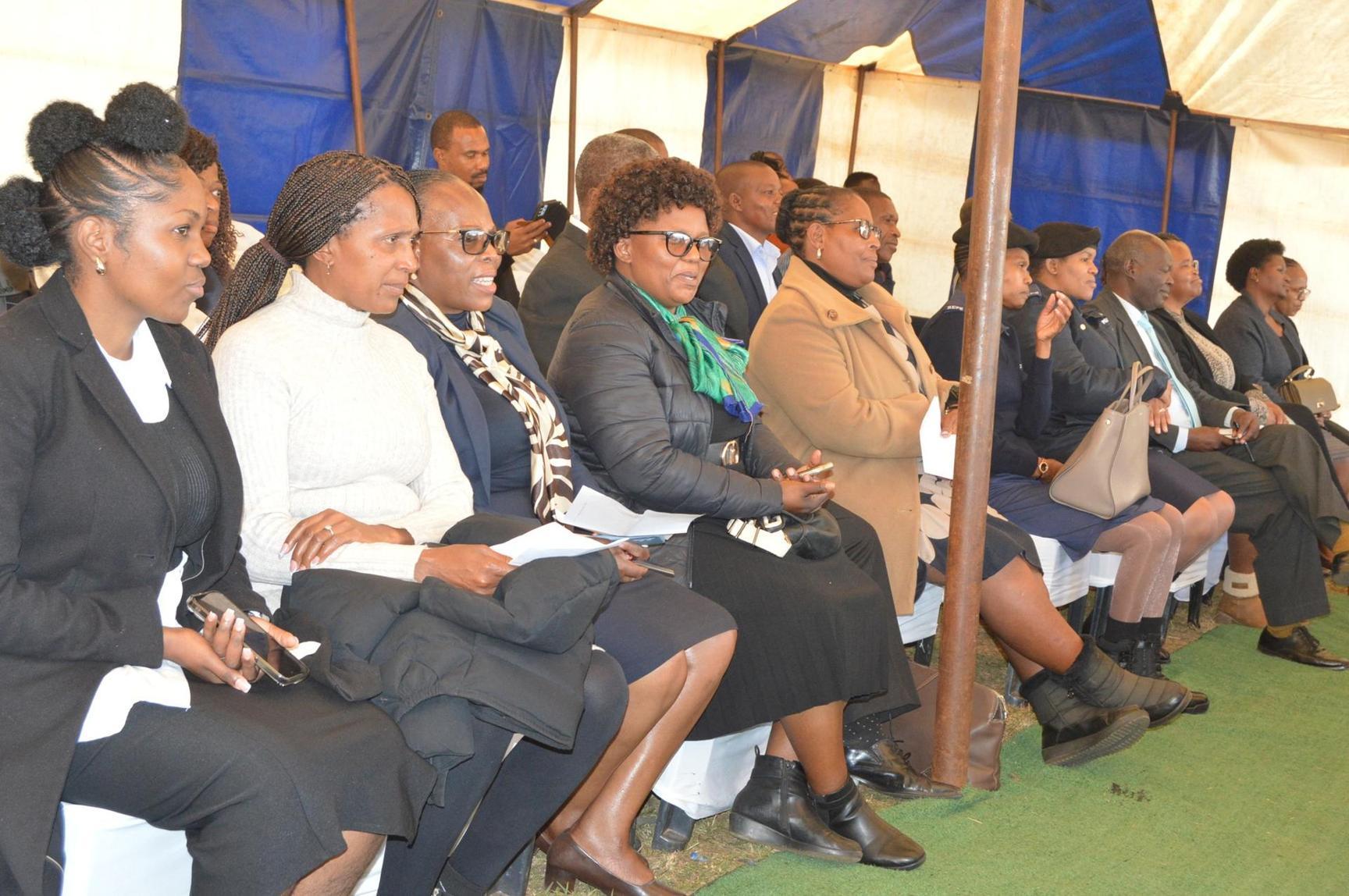Africa-Press – Eswatini. A powerful legacy of development and resilience took root in Nkwene as Deputy Prime Minister Thulisile Dladlaofficially unveiled the new Salem High School multipurpose hall, a modern facility built through the E20 million investment from the Regional Development Fund (RDF).
This transformative investment marks a watershed moment for education and community empowerment in the constituency.
With infrastructure upgrades rolled out across all four chiefdoms, the initiative goes beyond bricks and mortar, it reflects a bold national vision for equity, dignity, and access to education.
More than just a building, the hall represents a space where young minds will be nurtured, futures shaped, and communities brought together.
Its completion is not only a testament to the government’s commitment to rural development but also a rallying point for unity, pride, and shared progress.
The Nkwene projects are part of a broader effort to bridge the urban-rural divide, ensuring that no child is left behind due to geography or economic barriers. Through the RDF, the government continues to unlock the potential of underserved areas, laying the foundation for a more inclusive and empowered Eswatini.
“This infrastructure stands as a testament to the unwavering commitment of government, the Nkwene Inkhundla, and all stakeholders in ensuring a thriving educational environment for our children,” Dladla declared.
She praised the school and community for their perseverance in seeing the long-awaited project reach completion.
“This is a significant milestone in the long history of this school, which is a testament to the dedication and endurance shown by the community of Salem and in particular, the school,” she said.
The Deputy Prime Minister noted that over the past five years, the Nkwene Inkhundla has made deliberate use of the RDF, investing E20 million in both infrastructure and income-generating projects.
She emphasized that schools have been the primary beneficiaries, in alignment with Sustainable Development Goal 4 (SDG 4), which advocates for inclusive and equitable quality education.
“Schools across all four chiefdoms have received much-needed support,” Dladla said. She reinforced that education remains central to the government’s development agenda.
Turning to the importance of the newly opened hall, Dladla stated, “The construction of this state-of-the-art hall at Salem High School is a crucial step toward enhancing the quality of education and, by extension, improving the quality of life of the Salem community.”
She described it as a space that transcends bricks and mortar: “More than just a structure, this hall is a centre of learning, collaboration, and community-building.
E20 Million RDF Investment Transforms Education and Unites Community in Nkwene.Deputy Prime Minister’s Thulisile Dladla delivering her remarks during the official opening.
It provides a versatile space for academic, cultural, and extracurricular activities, fostering unity, creativity, and a sense of pride among learners.”
Moreover, beyond the walls of education, the DPM addressed the urgent national concern of violence against children. She condemned in the strongest terms the growing threat of child abuse and called on communities to act with vigilance and compassion.
“We urge parents and communities to ensure that children walk in groups and are accompanied to and from school for their safety,” she said. She also praised the Royal Eswatini Police Service for their partnership with communities in responding to and preventing child abuse.
In calling for a major culture of care and support, Dladla stressed the need for inclusive learning environments.
“Accessibility must remain a priority—barrier-free environments, adaptable furniture, and inclusive infrastructure are fundamental requirements in ensuring every learner has the opportunity to thrive in a dignified and supportive setting,” she said.
She urged the community to ensure the longevity of the hall through collective ownership. “A sustainability plan must be implemented to maintain this facility for generations to come, fostering a shared sense of ownership and protecting it against misuse and vandalism,” she added.
Minister of Tinkhundla Administration and Development Sikhumbuzo Dlamini, who also serves as the area’s Member of Parliament, revealed that the project had taken more than a decade to complete.
He commended the school’s headteacher for the perseverance that led to the project’s finalization. However, he also raised an unresolved issue which is the absence of running water at the school. “We urge authorities to address this matter urgently,” he said.
Dlamini further pledged E50,000 to fund annual soccer competitions for both primary and high school learners, citing sport as a powerful tool for discipline, skill-building, and the protection of youth from harmful influences.
Meanwhile, Minister of Education and Training Owen Nxumalo praised the Deputy Prime Minister for her consistent support of the education sector and pledged that the ministry would soon deploy ICT and English teachers to improve student performance.
“We are committed to transforming education to enhance skills and opportunities for every liSwati child,” he said.
For More News And Analysis About Eswatini Follow Africa-Press







